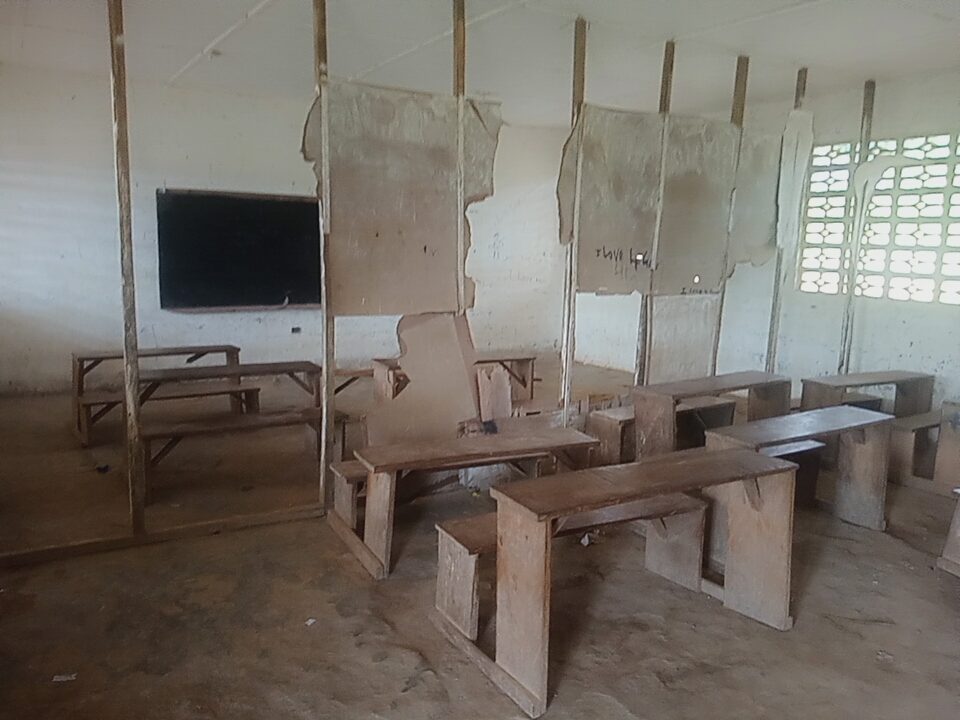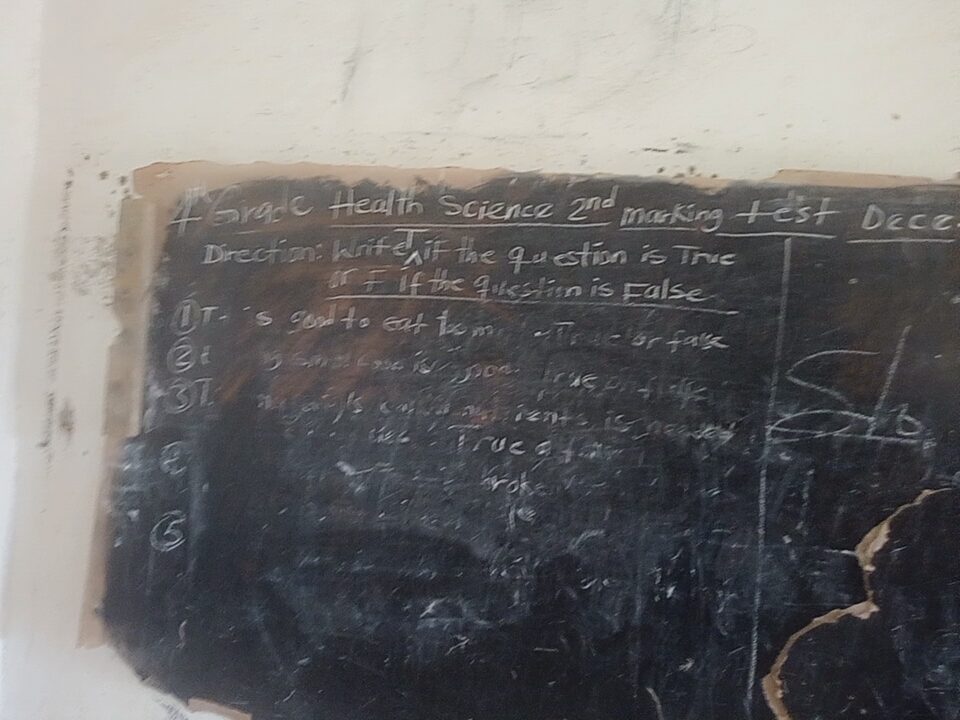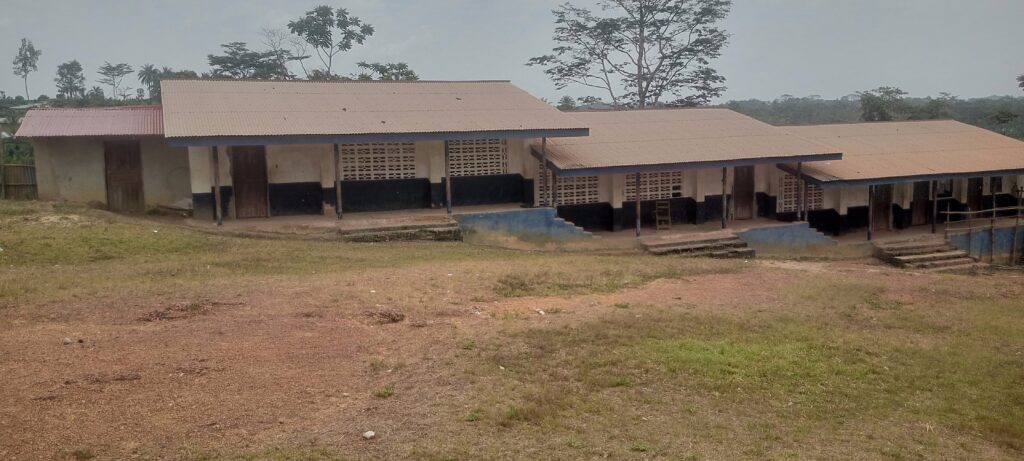By: Ben TC Brooks
River Gee County, Fish Town – Dec 15, 2024 – The quality of education at Wahploh Memorial Institute (WMI) in Kelipo Kanweaken, River Gee County, is being severely compromised by critical infrastructure issues and inadequate resources. The school, one of the oldest in the Kilepo Chiefdom, faces severe overcrowding, chair shortages, and a host of other challenges that undermine its ability to provide a conducive learning environment for her students.
The Wahploh Memorial Institute, situated in northern River Gee near the borders with Grand Gedeh and Sinoe Counties, serves as a primary educational institution for children in the region. Yet, despite the significant role it plays in the community, the school remains trapped in a cycle of neglect and underfunding, particularly evident in its kindergarten and elementary sections.
According to School Registrar Rufus Swengbe, students frequently bring their chairs and benches to school to sit on, a situation that underscores the dire shortage of seating in the various classrooms. “It’s common to see students hauling chairs and benches back and forth to school,” Swengbe noted. This lack of basic classroom furniture reflects the broader neglect of essential educational infrastructure.

Beyond seating, the school’s conditions are worsening. Damaged blackboards, broken windows, and leaking roofs further exacerbate the learning environment. “When it rains, we can’t use certain classrooms because they flood, which not only disrupts lessons but is also harmful to the children’s health,” Swengbe explained. These issues, coupled with dust-filled floors and walls in disrepair, make it nearly impossible for students to focus on their studies, let alone thrive academically.
Despite the desperate pleas from the school’s administration and the local community, efforts to resolve these problems have been largely unsuccessful. “We’ve reached out to the County Education Officer, local authorities, and even influential community members, but nothing has changed,” Swengbe lamented.
The school currently registers over 350 students for the 2024/2025 academic year, yet it continues to function under conditions that would be deemed unacceptable in many other regions.
Parents of students at the school share their frustration. Ma Annie Cholo, whose child attends Wahploh Memorial Institute, expressed disillusionment with the government’s unfulfilled promises of support. “Every year, we cry about the lack of chairs and proper facilities, but nothing is done. I am tired of hearing empty promises,” she said.

Similarly, Bobby Jalawah, another concerned parent, noted the disparity between government-run schools and those attended by children of officials. “If I had a decent job, my children would attend the schools where government officials send their kids. They don’t care about the hardships our children face,” Jalawah said. He stressed that local authorities should take action during the upcoming county sittings to allocate funding for public schools instead of relying solely on national government intervention.
Human Resource Officer Emmanuel Norington, speaking on behalf of the County Education Officer, acknowledged the deplorable state of Wahploh Memorial Institute and similar schools across the county. He reassured that the Ministry of Education has identified these schools’ needs and is working to address them by early 2025. “We have sent a comprehensive list of challenges faced by these schools to the Ministry for redress,” Norington said, though the community remains skeptical of the timeline given the history of delayed responses.
In a related development, the Ministry of Education has appointed Jallah Sammy, a former District 4 Representative candidate from Montserrado County, as the new County Education Officer for River Gee. Sammy, who holds a Master’s degree in education from Cuttington University, is expected to take office following the festive season. While he has expressed a commitment to improving educational conditions in the county, the real challenge will lie in securing the resources needed to address the long-standing issues facing schools like Wahploh Memorial Institute.
As the educational community waits for action, the situation at Wahploh Memorial Institute remains a stark reminder of the urgent need for greater investment in public education, particularly in rural areas.
Edited by: Jesefu Morris Keita



